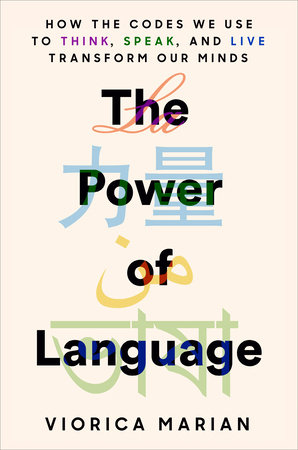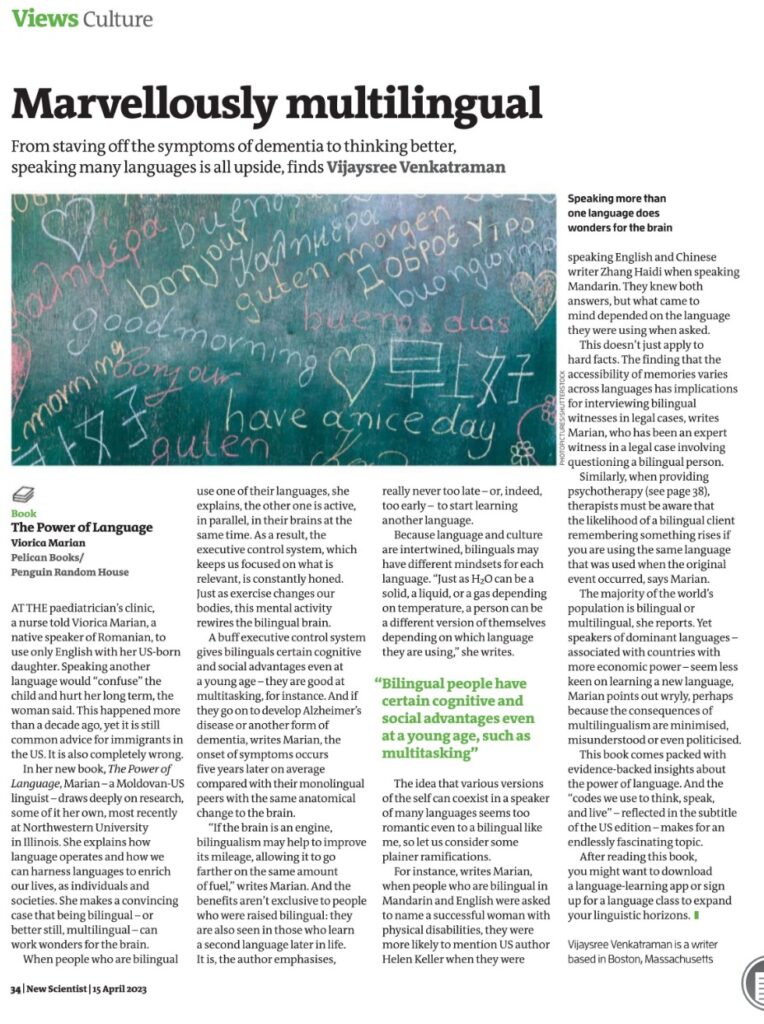
At the pediatrician’s clinic, a nurse told Viorica Marian, who is a native speaker of Romanian, to use only English with her American-born daughter. Speaking another language would “confuse” the child and hurt her long-term, the woman had said. This was a good decade ago. Even today, it is common advice for immigrants in the United States – it is also completely wrong.
In her new book, The Power of Language, Marian, a Moldavian American linguist, draws deep on research, some of it her own, to explain how language operates in our minds, and how we can harness the limitless power of languages to enrich our lives, as individuals and societies. She makes the convincing case that being bilingual, or better still, multilingual, can work wonders for the brain.
When bilingual persons use one language, she explains, the other language is active in their brains at the same time. As a result, the executive control system, whose job it is to keep us focused on what’s relevant, gets honed constantly. Just as exercise can change our bodies, this mental activity rewires the bilingual brain.
A buff executive control system gives bilinguals certain cognitive and social advantages even at a young age– they are good at multitasking, for instance. Later, they are able stave off the onset of Alzheimer’s, and other forms of dementia, by an average of five years compared to their monolingual peers with the same level of anatomical decay.
“If the brain is an engine, bilingualism may help to improve its mileage, allowing it to go farther on the same amount of fuel,” the author writes. The attention and aging benefits aren’t exclusive to people who were raised bilingual – they are also seen in people who learn a second language later in life. It is never too early or too late to start learning another language, the author emphasizes.
Because language and culture are intertwined, bilinguals may have different mindsets for each language. “Just as H2O can be a solid, a liquid, or a gas depending on temperature, a person can be a different version of themselves depending on which language they are using,” she writes.
If the idea that various versions of the self can coexist in a speaker of many languages, seems too romantic, consider plainer ramifications of bilingualism. When Mandarin–English bilinguals were asked to name a woman who succeeded despite physical handicaps, they were more likely to say Helen Keller when speaking English and Zhang Haidi when speaking Mandarin. They knew both answers, but what came to mind varied depending on the language spoken at any given time.
It is not just hard facts – even the recall of personal memories can vary depending upon the language. In a linguistically diverse nation like the U.S., the finding has implications for interviewing bilingual witnesses in legal cases.
Similarly, when providing psychotherapy to bilingual clients, therapists need to be aware that, in some instances, crucial early memories may be encoded in a client’s native languages and can only be retrieved in that language.
The majority of the world’s population is bilingual or multilingual. People who speak a language that is considered low-prestige are well aware of the benefits of learning another language, ideally a dominant language that gives them access to the power dynamic of a globalized world and economy, Marian writes.
This book comes packed with interesting insights about the power of language even though it is written in the language of research papers. The codes we use to think, speak, and live, make for an endlessly fascinating topic. Chances are, you will download a language learning app, or make plans to sign up for an in-person language class once you’ve read this book.
